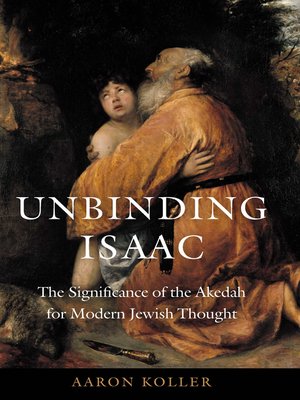
Sign up to save your library
With an OverDrive account, you can save your favorite libraries for at-a-glance information about availability. Find out more about OverDrive accounts.
Find this title in Libby, the library reading app by OverDrive.



Search for a digital library with this title
Title found at these libraries:
| Library Name | Distance |
|---|---|
| Loading... |
Unbinding Isaac takes readers on a trek of discovery for our times into the binding of Isaac story. Nineteenth-century Danish philosopher Søren Kierkegaard viewed the story as teaching suspension of ethics for the sake of faith, and subsequent Jewish thinkers developed this idea as a cornerstone of their religious worldview. Aaron Koller examines and critiques Kierkegaard's perspective—and later incarnations of it—on textual, religious, and ethical grounds. He also explores the current of criticism of Abraham in Jewish thought, from ancient poems and midrashim to contemporary Israel narratives, as well as Jewish responses to the Akedah over the generations.
Finally, bringing together these multiple strands of thought—along with modern knowledge of human sacrifice in the Phoenician world—Koller offers an original reading of the Akedah. The biblical God would like to want child sacrifice—because it is in fact a remarkable display of devotion—but more than that, he does not want child sacrifice because it would violate the child's autonomy. Thus, the high point in the drama is not the binding of Isaac but the moment when Abraham is told to release him. The Torah does not allow child sacrifice, though by contrast, some of Israel's neighbors viewed it as a religiously inspiring act. The binding of Isaac teaches us that an authentically religious act cannot be done through the harm of another human being.
Finally, bringing together these multiple strands of thought—along with modern knowledge of human sacrifice in the Phoenician world—Koller offers an original reading of the Akedah. The biblical God would like to want child sacrifice—because it is in fact a remarkable display of devotion—but more than that, he does not want child sacrifice because it would violate the child's autonomy. Thus, the high point in the drama is not the binding of Isaac but the moment when Abraham is told to release him. The Torah does not allow child sacrifice, though by contrast, some of Israel's neighbors viewed it as a religiously inspiring act. The binding of Isaac teaches us that an authentically religious act cannot be done through the harm of another human being.
Download a Study Guide







